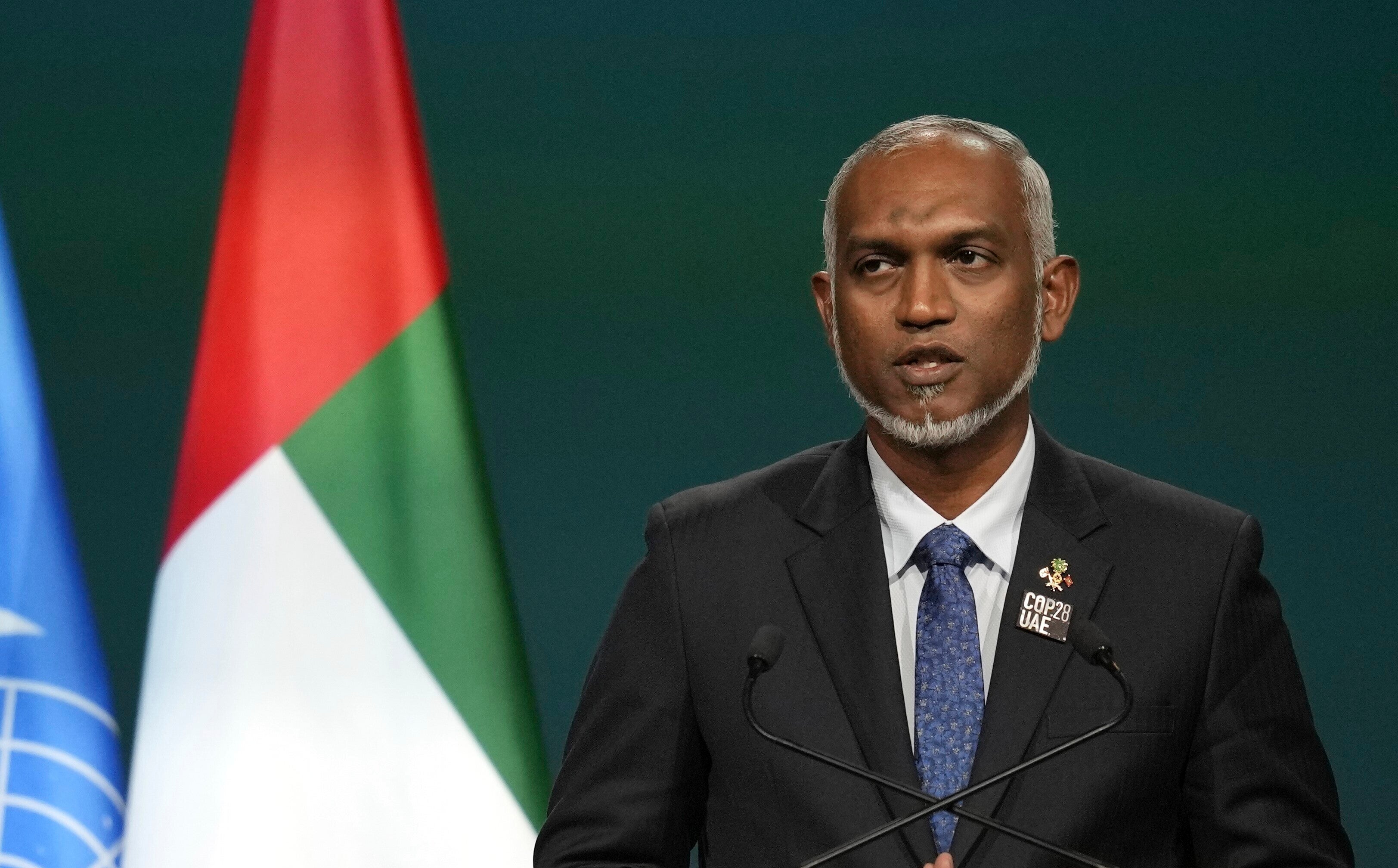Maldives leader demands removal of Indian military from the archipelago by mid-March amid spat
Maldives’ President Mohamed Muizzu wants the Indian military personnel stationed in his archipelago nation withdrawn by March 15

Maldives' President Mohamed Muizzu wants the Indian military personnel stationed in his archipelago nation withdrawn by March 15, an official with his office said Sunday.
Abdulla Nazim Ibrahim, a presidential aide, told reporters that Muizzu proposed the removal at a meeting with officials of the Indian Embassy in the Maldives and other visiting Indian officials.
The move comes a day after Muizzu returned from China, India's regional rival, and made comments critical of India.
Muizzu said his county's small size is not a license for anyone to bully the Maldives. His comments were an apparent response to social media calls in India to boycott Maldives tourism after three Maldives deputy ministers made derogatory posts on social media against Indian Prime Minister Narendra Modi.
The dispute began last week when Modi posted pictures on X, formerly known as Twitter, of himself strolling on the beach and snorkeling in Lakshadweep, an Indian archipelago that his government believes has untapped potential for tourism.
Some in the Maldives saw it as an attempt to lure tourists away from its sandy white beaches and luxury island resorts.
Muizzu suspended the deputy ministers, saying their comments did not reflect government policy. However, Muizzu on his return from China announced plans to free Maldives of its dependence on India and find alternate places for Maldivians to obtain education and health services and import staples and medicines.
Currently, Maldivians go to hospitals in India and Sri Lanka under the government- sponsored free health program and many of the country's staple foods are imported from India.
Muizzu said Maldivians will now be able to also go to hospitals in Thailand and the United Arab Emirates and staples will be imported from Turkey. He also said medicines will be imported directly from manufacturers in Europe and the United States.
India sent the highest number of tourists to the Maldives last year with a share of 11%. But Muizzu said China used to send the most before teh pandemic and steps will be taken to double that number.
India and China are competing for influence in the Maldives, which is located strategically along a key shipping route between the east and the west.
At least 75 Indian military personnel are stationed in the Maldives and Muizzu, who is considered pro-China, campaigned on a promise of removing them in the run-up to the presidential election last November. His party had waged an “India Out” campaign for months.
Muizzu had accused his election rival and predecessor of compromising national sovereignty by allowing India to have its military personnel in the Maldivian islands.
Known activities of the Indian military include operating two aircraft donated by India and assisting in the rescue of people stranded or faced with calamities at sea.
Regarding the donated aircraft, Ibrahim said: “If military personnel are here, military people will have to leave this country and it’s okay if civilians ... are here to operate them, that’s what’s being discussed in these meetings.”
Bookmark popover
Removed from bookmarks